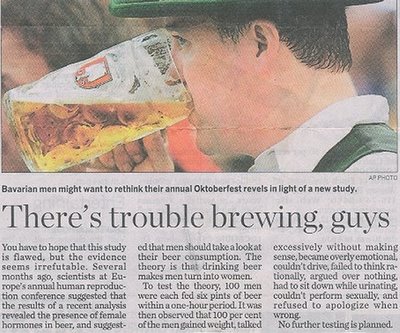NKF issue raising questions
Star, Malaysia
on long-standing policies
December 25, 2005
Insight Down South By Seah Chiang Nee
AFTER months of investigation during which erased computer data was recovered and files guarded to prevent being removed, the report on Singapore’s biggest scandal in years is finally out.
It showed things were worse than at first believed.
The 332-page KPMG Report on the National Kidney Foundation (NKF) unveiled an unethical and lavish use of public charity money – possibly even criminal offences – by its CEO T.T. Durai.
(He and the whole board of directors had resigned en masse and a new team has taken over.)
The details shocked the people, who had long been led to believe that such practices might happen in other countries but not in squeaky-clean Singapore.
After all, the biggest charity body had operated public-donated funds in excess of S$200m (RM444.9mil) raised with government patronage to perform a national function.
Mrs Goh Chock Tong was the Patron and political leaders helped in the fundraising so, people reasoned, how could their money not be safe.
The revelation has shaken the fabric of public confidence on official transparency. Government ministers and other ruling party figures had, until very recently, endorsed and praised Durai’s ability to raise so much money.
Most of the anger is directed at Durai and several executives and the board, which had given him a free hand to do as he liked.
Because of the link, the crisis had rubbed off on the government, which is blamed for poor judgment and dereliction of duty as a watchdog of a body that handles so much public money.
Two out of every three Singaporeans have contributed to NKF, including many lowly-paid workers who pledge monthly contributions from their pay.
They’ve become bitter and distrusting because they’ve just learned that only 10 cents of every S$1 (RM2.22) of their donations was spent on the patients, not 51% as Durai had told them.
The number of beneficiaries and amount of their subsidies were inflated.
Durai last earned an annual salary of S$300,000 (RM667,300) but was also raking in a large fortune during his tenure by regularly paying himself, through creative accounting, overtime pay, converted leave and bonuses – backdated. In 16 months before leaving, he had made 16 overseas trips on first class tickets.
His executives, especially two lady directors, came in for special treatment. One of them had several pay increases a year, barely one or two months after the previous one.
The KPGM Report is so voluminous that it would take weeks for Singaporeans to digest everything but as the details spread, so did the bitterness.
Some grassroots workers fear the repercussion may have a negative impact on the ruling People’s Action Party during the coming elections, widely expected in the first quarter of next year.
A day after the KPMG report, Minister of Health Khaw Boon Wan held a press conference to give the government’s response.
The authorities were investigating to decide if anyone could be charged in court, he said, pledging the full extent of the law with no cover-up.
The actions of Durai and the board were ‘disappointing’, he added. “We now know that we all have been misled.”
Unsmiling and sombre-looking, Khaw admitted the government “had failed” to perform its watchdog role and stop the rot despite receiving informal and anonymous complaints over the years.
The straightforward, no holds-barred revelation of the Report had regained some of the government's standing with the public. It required political courage. It could have been released after the polls.
One writer commented, “Khaw spoke with sincerity and honesty. He addressed the issue straight in the face and not evade it. Salute!”
The people are far from being placated. Whether the NKF saga would have lasting damage would depend on whether the perpetrators are prosecuted.
“If after all this no one is punished, justice will suffer. People will always think that offenders are protected,” a forummer exclaimed. “If everyone goes free, no one will contribute to charity again.”
How many other NKFs are there, and what is being done to expose them? Khaw said the government watchdog role would be strengthened by legislative amendments.
Predictably, the issue has also raised questions on a couple of longstanding policies.
One involves the absence of an independent check and balance structure, which exists in other developed countries in the forms of a strong opposition and an independent media, not available here.
The PAP has always said Singapore doesn’t need either of them to play the role. It says an honest government is its best watchdog against wrongdoing. The NKF fiasco questions how effective this can work over the long term.
Secondly, it calls into question Minister Mentor Lee Kuan Yew’s argument that high government salaries would prevent corruption. His rationale is that if a person is very well paid, he will not be tempted by greed.
While Durai has not been charged with corruption, his high pay had not kept him away from acquiring more even if it’s from the charity basket.
